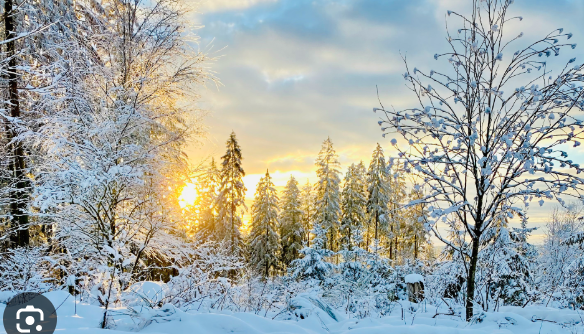Everything has an origin story. So does the most cheerful, joy filled holiday of the year. Everybody loves Christmas, but when and why did we start celebrating this holiday? Around the world, the middle of winter has long been a time of celebration. Many centuries before the arrival of Jesus, early Europeans celebrated light and birth in winter’s darkest days. During the winter solstice, people would celebrate, because the worst of winter was behind them and they could look forward to longer days and more hours of sunlight. Now of course, different regions had different celebrations. In Scandinavia, the Norse would celebrate Yule from the winter solstice of December 21st through January. To mark the return of the sun, father and sons would bring home large logs, using them to set a fire. The people would feast until the log burned out, which would take as many as 12 days. They believed that each spark of the fire represented a new pig or calf that would be born during the coming year. In general, the end of December was a perfect time for celebration in most areas of Europe. At that time of year, most cattle were slaughtered so they would not have to be fed during the winter. For a lot of people, this was the only time of year where they had a supply of fresh meat. Also, most wine and beer made during the year was finally fermented and ready for drinking. In Germany, people honored the pagan god Odin during their mid-winter holiday. Germans were terrified of Odin, as they believed he made nocturnal flights through the sky to observe his people, and then decide who would prosper or perish. As a result, many people chose to stay inside. Finally, in Ancient Rome, where winters were not as harsh, Saturnalia- a holiday in honor of Saturn, the god of agriculture, was celebrated. Beginning in the week leading up to the winter solstice and continuing for a full month, this holiday was intense to say the least, where food and drink were plentiful and the Roman social order turned upside down. For a month, enslaved people were given temporary freedom and treated as equals. Business and schools were closed so that all could participate in the festivities of the holiday. In conclusion, Christmas as we know it has deep roots, more than Jesus itself. To different peoples in different times it symbolizes and represents different things, but it shows the significance the winter solstice has for different cultures. Christmas may be known by different names, but its central message remains true. So Merry Christmas everyone, and as the Norse say, Merry Yule and Happy Solstice!
Christmas (A Complete Chronology)
Jonathan Barbanell, Guest Contributor
December 6, 2024

Image via Christmas Central
0